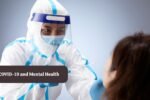When the pandemic first started, most people believed children were safe from COVID-19. But as time passed, we realized that while kids are less likely to get very sick compared to adults, they are not completely free from risk. If you are a parent, it’s natural to worry and want the best for your child. So, let’s talk about what you really need to know about COVID-19 and children in a simple, beginner-friendly way.
Can Children Get COVID-19?
Yes, children can catch COVID-19. The virus doesn’t see age. The good news is that most kids usually get mild symptoms like fever, cough, tiredness, or sometimes no symptoms at all. But mild doesn’t mean harmless. Some children, especially those with health problems like asthma, diabetes, or weak immunity, can face more serious issues.
How Does COVID-19 Affect Kids?
Think of COVID-19 like a storm. For most children, it feels like light rain—uncomfortable but not dangerous. For a few, it can feel like a heavy storm that needs extra medical care. Some kids may also suffer from something called “long COVID,” where tiredness, breathing problems, or brain fog continue even after recovery.
How Can Kids Stay Safe?
Children don’t always remember to wash their hands or cover their mouths when they sneeze. That’s where parents play a big role. Simple habits can go a long way. Teach them to wash hands often, wear masks when needed, and keep some distance in crowded places. You don’t need to scare them—just make it part of everyday life, like brushing their teeth.
The Role of Vaccines for Children
Vaccines are like shields. They don’t make kids completely invincible, but they give strong protection against severe illness. Depending on where you live, children above a certain age may be eligible for vaccines. Talk to your doctor and make sure your child’s vaccination schedule is up to date.
What About Schools and Playgrounds?
Parents often ask, “Is it safe to send my child to school?” The answer isn’t the same for everyone. If the school follows safety rules like good ventilation, sanitization, and proper distancing, the risk is lower. But remember, kids also need social interaction for their mental health. Balance safety with normal activities—it’s like walking on a rope, but it’s possible with care.
Signs Parents Should Watch For
If your child shows signs like high fever, chest pain, trouble breathing, or unusual tiredness, don’t wait. Get medical help quickly. Trust your instincts—you know your child better than anyone.
Supporting Children Emotionally
COVID-19 hasn’t only been about health—it has also affected children emotionally. Many kids feel stressed or lonely when they can’t meet friends or attend school normally. Talk to your child, listen to their worries, and spend quality time together. Sometimes, a warm hug works better than any medicine.
Conclusion
COVID-19 may not hit children as hard as adults, but it still matters. Parents should stay alert, encourage good habits, keep up with vaccines, and support their kids both physically and emotionally. Remember, knowledge is power. The more you know, the better you can protect your child.














